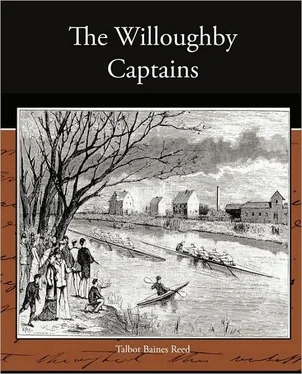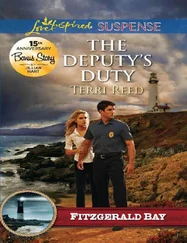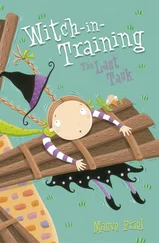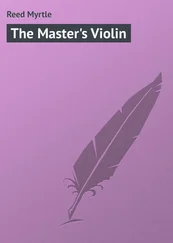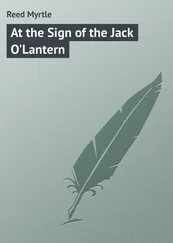“Yes, but we had a better tide,” said Riddell.
Wyndham’s face clouded, for he knew it was true.
“You must win, I say,” said he, almost fiercely.
Riddell smiled.
“I mean to oblige you if I can, for one,” said he.
“If they win,” said Wyndham, “it’ll be—”
But what it would be the youthful enthusiast lacked words to express.
Riddell turned again to his writing.
“Hadn’t you better finish your work?” said he.
“Oh, I can’t!” exclaimed Wyndham. “Who could work just before the race?”
So saying, he got up and gathered together his things.
Riddell was sorry for this. He had hoped the boy would stay. Amid all his fresh duties the new captain had kept his eye on his old friend’s brother, and of late he had seen things which made him uneasy. Wyndham was on friendly terms again with his two undesirable patrons, and simultaneously his work in the library and his visits to Riddell’s own study had become less regular. It all meant something, Riddell knew; and he knew, too, that that something was not any good. He made one attempt to detain the boy.
“You aren’t going?” he said kindly.
“Yes. It’s really no use grinding, to-night, Riddell.”
“Won’t you stop and keep me company, though?” asked the captain.
“You’re working,” said the boy. “I’ll come to-morrow. Good-night.”
And he went, leaving Riddell very uncomfortable. Why should he be so eager to go? Why should he always seem so restless now whenever he was in that study? Why should he always avoid any reference to—
Ah! here he was back again. A gleam of hope shot through Riddell’s breast as he saw the door open and Wyndham re-enter. Perhaps, after all, the boy was going to stay and give him a chance. But no, Wyndham had come back for his knife, which Riddell had borrowed for sharpening a pencil. That was all he wanted; and having recovered it he departed quickly.
Riddell spent the rest of that evening in low spirits. He had been baulked, and worse than that, he felt other hands were playing their game more successfully, and that amongst them all young Wyndham was going wrong.
So the eve of the great boat-race was anything but a cheerful evening for the new captain.
But with the morning even Riddell could hardly harbour any thoughts outside the event of the day. Morning school that Wednesday was a farce all over Willoughby. Even the doctor seemed absent-minded, while one or two of the junior masters gave up the attempt in despair.
The race was fixed for three o’clock, when the tide would be running up at its fastest, and long before that hour every advantageous point of view on the banks was secured by eager spectators. These were by no means all Willoughby boys, for the school boat-race was always more or less of an event in Shellport itself, whose inhabitants flocked in large numbers to the scene of the contest.
Carnages lined the banks on either side for a considerable distance, and as usual the doctor’s party assembled in great force on Willow Point. The towing-path was jealously kept clear for the schoolboys, who trooped down in force the moment after lunch, and took possession of their places along the course. Some crowded at the starting-point. These were chiefly the more athletic heroes of the school, whose flannels and running-shoes bespoke their intention of following the race on foot. Others, less actively inclined, massed at various critical points along the course, some at the finish, but more opposite Willow Point, which being just three-quarters of the way down, and almost within view of the goal, was generally considered the most advantageous point of view of the whole race.
At this point, in a snug corner above the path, with a fine view of the sharp bend of the river, and of the reaches up and down stream which met there, sat Gilks and Silk. They knew probably as well as any one that the crisis of the race was pretty sure to be played out at Willow Corner, and not a few late comers looked up at their commanding perch with envy.
“Where’s the young ’un?” said Silk.
“Running with the race,” said Gilks. “I couldn’t dissuade him. He’s gone daft over the thing.”
Silk laughed.
“I’m afraid it’ll be a blow to him, then. Young fool. I say, he was at his father confessor’s last night. I wonder if he’ll let out about Saturday night?”
“Not he. That is,” said Gilks, viciously, “I don’t think he will.”
“Well, it might be warmish for him if he did.”
“Very warmish,” said Gilks, with a scowl, which it was just as well for Wyndham’s comfort he did not see.
There was a silence, during which Gilks whistled to himself, and Silk regarded his ally with a smile.
“You are a nice boy!” he broke out presently. And the laugh which greeted this very unoriginal observation closed the conversation for a time.
Meanwhile, down at the boat-house things were getting very lively.
Telson, Philpot, Pilbury, Cusack, King, and other of our juvenile friends, who, with their usual modesty, proposed to run along with the race, and now formed part of the crowd which awaited the start, kept up a boisterous chorus of shouts, some of defiance, some of derision, some of applause, addressed alternately to foe and friend.
The young Welchers especially, having no personal interest in the race, felt themselves delightfully free to make themselves objectionable to all parties, and took full advantage of the circumstance.
They howled at everybody and everything. Whenever King and Bosher greeted the appearance of the Parrett’s boat with a friendly cheer they hooted; and no sooner did Telson sing out to welcome the crew of his house, but they caterwauled derisively in the same direction.
“Jolly lot they know about rowing!” yelled Cusack.
“Why don’t you give them some lessons?” retorted Telson, hotly.
“Boo — hoo! Who got kicked out his boat! Young muller, couldn’t steer a tub.”
“I’ll tub you, young Pilbury, see if I don’t, presently,” replied Telson.
“Never mind them,” shouted King, “can’t even make up a boat; pack of funks, all of them!”
“Hullo! who are you?” cried Philpot, rounding on these new assailants. “We’d have a boat, never fear, if there was any chance of fair play.”
“Lot of fair play you’d want, to turn the boat round and round and catch crabs every other second!”
“There are our fellows!” cried Wyndham, raising a loud cheer as Fairbairn, Coates, Porter, Crossfield, and Riddell appeared on the landing stage.
“Hurrah! schoolhouse, hurrah!”
“Ye-ow, look at them — there’s a lot!” hooted the Welchers.
“There’s old Parson!” yelled Telson, Bosher, and King, as the youthful hero in question strutted magnificently down to the landing.
“What cheer, stuck-up jackass?” howled the Welchers, with an insulting laugh; “why don’t you grin?”
This remark was suggested by Parson grandly waving his handkerchief and smiling to his admiring friends.
But it is time to quit these friends and make our way to the boats themselves, which now lie waiting for their crews to embark.
This is always a tedious process for onlookers. The shifting of stretchers, the getting-out of oars, the arrangement of rudder strings, and the delicate trimming of the boat, may be interesting enough to the crews themselves, but only feed the impatience of onlookers.
And as usual hitches are bound to occur. Coates has got the oar belonging to Crossfield. And when this mistake has been remedied, Bloomfield in the other boat suddenly discovers that his stretcher is a little weak, and insists on waiting till a new one is brought.
Finally everything is ready, and the two boats slowly swing out into mid-stream. The schoolhouse boat has won the toss, for it takes up the inside berth, amid the triumphant cheers of its partisans.
Читать дальше
